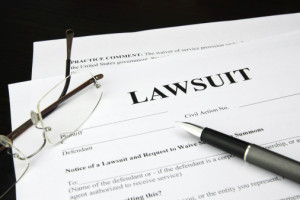Regardless of what you think of lawyers on a personal level, you’ve got to admit: They’re a clever bunch. When they see a legal tactic that works, they ride it until the wheels fall off.
The new lawsuit du jour workers are slapping employers with: defamation.
The Recorder, a news outlet for tech-focused legal professionals, spoke to employment lawyers in the Silicon Valley area and found that plaintiffs are starting to frequently add defamation claims to their wrongful termination and discrimination lawsuits against employers.
Example: L. Julias Turman, a partner at the firm Smith Reed LLP, told The Recorder that at least 60% of his wrongful termination and harassment cases include defamation claims.
And here’s the kicker: Turman said defamation claims are being tacked on to lawsuits whether they’re appropriate or not.
Reason: They give plaintiffs another avenue for — and increase their chances of — recovering money.
Defamation defined
According to The Recorder’s report, the defamation claims being filed against employers involve an ex-employees accusing their bosses — i.e., management — of providing false reasons for firing them.
In other words, terminated employees are trying to recover money for what they claim are statements or accusations made by their former employers that hurt their names — or personal brands — to the point that it would be difficult for them to find future employment.
An example of how a defamation claim could easily be tacked on to a harassment or discrimination lawsuit: Say a worker is claiming that he was fired for discriminatory reasons because he’s African American. And say the employer has stated that its reasoning for terminating him is because he was constantly late for work.
The worker can tack a defamation claim onto his discrimination lawsuit by alleging that the statements about his punctuality were false and were actually used as a pretext for firing him.
The attorneys interviewed by The Recorder said that this was always a course of action plaintiffs could take, but there’s a heavier focus on it now.
And that’s because it’s working. In a recent case highlighted by The Recorder, a worker terminated by Kemper Independence Insurance Co. had his wrongful termination and retaliation claims thrown out of court, but the man still managed to win a five-plus million dollar judgement because of his defamation claims.
That’s the type of result that makes attorneys stand up, take notice and find ways to tack defamation on to future suits.
The defense for employers
The good news: Employers aren’t powerless to defeat these claims — as long as they’ve got their documentation in order.
One attorney, Christopher Whelan, of Christopher H. Whelan Inc., whom The Recorder said has been described as “a guru in the field” of defamation, said proving a defamation claim isn’t easy for plaintiffs.
All an employer has to do, according to Whelan, to defeat one is prove that the alleged defamatory statement is true.
In other words, if you say a worker was chronically late, all you’d need are time and attendance records to back up that statement.
Taking things one step further, this means that you need ask yourself if you can back up, with hard evidence, that what you’re about to say about an employee is true — especially when what you’re about to say could hurt the person’s future employment prospects.
Spread the word to your managers.
For more HR News, please visit: Meet the trendy new lawsuit employers are getting slapped with
Source: News from HR Morning
